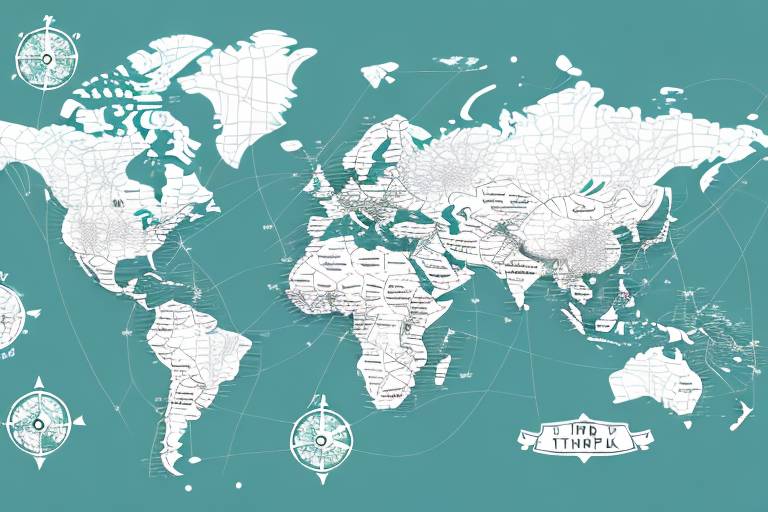Understanding IP Address Geolocation
IP address geolocation is a powerful technique used to track the physical locations of internet users. By analyzing the unique numerical address assigned to every device connected to the internet, geolocation technology enables organizations to identify the country, region, city, and even street where a user is accessing the internet.
But what exactly is an IP address, and how does geolocation work?
What is an IP Address?
An IP address, short for Internet Protocol address, is a unique identifier assigned to each device connected to a computer network that uses the Internet Protocol for communication. It serves two primary purposes: network interface identification and location addressing.
Think of an IP address as a digital passport identifying your location in the vast virtual world. IP addresses are composed of four sets of numbers, separated by periods. Each set can range from 0 to 255, resulting in over 4 billion possible combinations. This allows for many devices to connect to the internet and be uniquely identified.
When you connect to the internet, your Internet Service Provider (ISP) assigns you an IP address. This address can be either static, meaning it remains the same every time you connect, or dynamic, meaning it changes periodically.
How Does Geolocation Work?
Geolocation is made possible by combining data sources, algorithms, and databases. When a device connects to the internet, it sends a request to a server, which records the IP address. Geolocation services then compare IP addresses against large databases that map IP addresses to physical locations.
These databases, including the one associated with “10.0.0.0.1,” are constantly updated and maintained to ensure accurate geolocation information. They contain information about IP address ranges and their corresponding locations. By cross-referencing the IP address with these databases, geolocation services can determine the device’s approximate location. The geolocation accuracy depends on the database’s quality, the methodology used for mapping IP addresses to locations, and the availability of additional data sources such as Wi-Fi or GPS signals.
Geolocation technology has various applications, ranging from targeted advertising to fraud prevention. It allows businesses to tailor their marketing campaigns based on the location of their target audience, ensuring that their messages reach the right people in the right places. Additionally, geolocation is used by e-commerce platforms to verify the location of customers and prevent fraudulent transactions.
It’s important to note that while IP address geolocation can provide valuable insights, it is not always 100% accurate. Factors such as virtual private networks (VPNs) or proxy servers can mask the true location of a device, leading to potential inaccuracies in geolocation data.
Despite its limitations, IP address geolocation remains a valuable tool for businesses and organizations seeking to understand the geographical distribution of their online audience and tailor their strategies accordingly.
The Importance of IP Address Tracking
IP address tracking offers numerous benefits for businesses and individuals alike. Let’s look at how geolocation can enhance cybersecurity and personalize user experience.
Enhancing Cybersecurity
Identifying the geographic location of an IP address can help organizations detect and prevent malicious activities. Businesses can take immediate action to protect their networks by analyzing IP addresses associated with suspicious activities.
For example, if a company detects several login attempts from an unfamiliar country, it can implement additional security measures to verify the user’s identity before granting access.
Personalizing User Experience
Geolocation technology enables businesses to tailor their online content and services based on the user’s location. Companies can offer localized pricing, language preferences, and relevant promotions by understanding where their customers are located.
For instance, an e-commerce website may show different products or promotions depending on the user’s country. This personalized approach can enhance user engagement and increase conversion rates.
Methods of IP Address Geolocation
There are several methods used to geolocate an IP address. Let’s explore the most common ones: geolocation by IP address, geolocation by GPS, and geolocation by Wi-Fi.
Geolocation by IP Address
The most widely used method maps IP addresses to locations based on historical data and other contextual information. This approach allows organizations to determine the approximate location of an IP address.
However, due to the dynamic nature of IP address allocation and the lack of real-time data, this method may have limitations in terms of accuracy.
Geolocation by GPS
Many mobile devices, such as smartphones and tablets, have built-in GPS capabilities. Geolocation services can access the GPS data of these devices to determine their exact physical location.
This method is highly accurate but limited to devices equipped with GPS technology.
Geolocation by Wi-Fi
Geolocation by Wi-Fi triangulation uses the signals from nearby Wi-Fi access points to estimate the device’s location. The geolocation service can approximate the user’s position by comparing signal strengths from multiple access points.
This method balances accuracy and availability well since Wi-Fi access points are widespread in most urban areas.
Accuracy of IP Address Geolocation
The accuracy of IP address geolocation varies depending on several factors. Let’s consider the key factors affecting accuracy and the limitations of IP geolocation.
Factors Affecting Accuracy
Various factors, including the quality and coverage of the geolocation database, the precision of mapping IP addresses to locations, and the availability of additional data sources, can influence the accuracy of IP address geolocation.
Moreover, dynamic IP addresses, network address translation (NAT), and virtual private networks (VPNs) can introduce challenges in accurately pinpointing a user’s location.
Limitations of IP Geolocation
While IP geolocation can provide useful insights, it is important to recognize its limitations. IP addresses alone cannot identify an individual’s location or physical address.
Users can also employ anonymizing tools or proxy servers to hide their IP address, making it harder to determine their location accurately.
Legal and Ethical Considerations
As with any technology that involves the collection and use of personal data, IP address geolocation raises important legal and ethical considerations.
Privacy Concerns
Geolocation technology can potentially infringe on individuals’ privacy rights. It is crucial for organizations to handle users’ location data responsibly and transparently. The collection and use of geolocation data should comply with applicable data protection regulations and clearly stated privacy policies.
Legal Regulations Around the World
Legal regulations surrounding IP address geolocation vary from country to country. It is essential for businesses to familiarize themselves with the specific laws and regulations governing the use of geolocation data in each jurisdiction they operate in.
Organizations must ensure they obtain proper consent when collecting and using individuals’ location data, and they should only retain the data for as long as necessary.
Conclusion
IP address geolocation is a valuable tool for tracking locations and offers numerous benefits. By understanding how geolocation works, the importance of IP address tracking, the different methods employed, and the factors affecting accuracy, organizations can make informed decisions about incorporating geolocation technology into their operations while addressing legal and ethical considerations.


